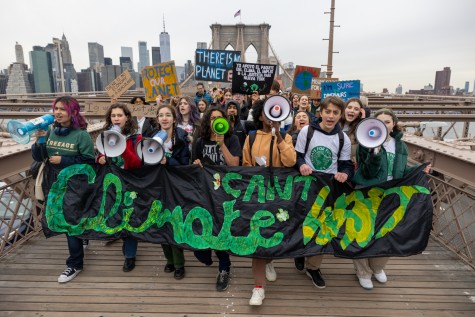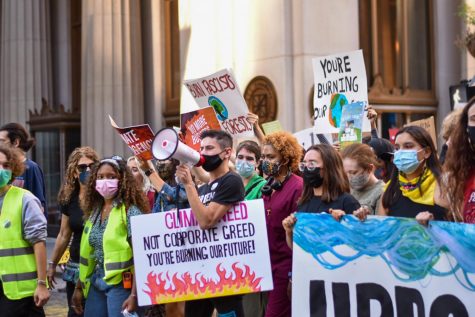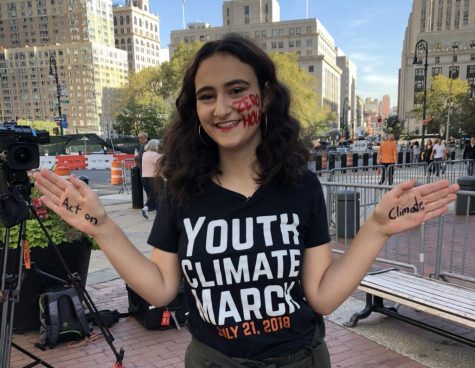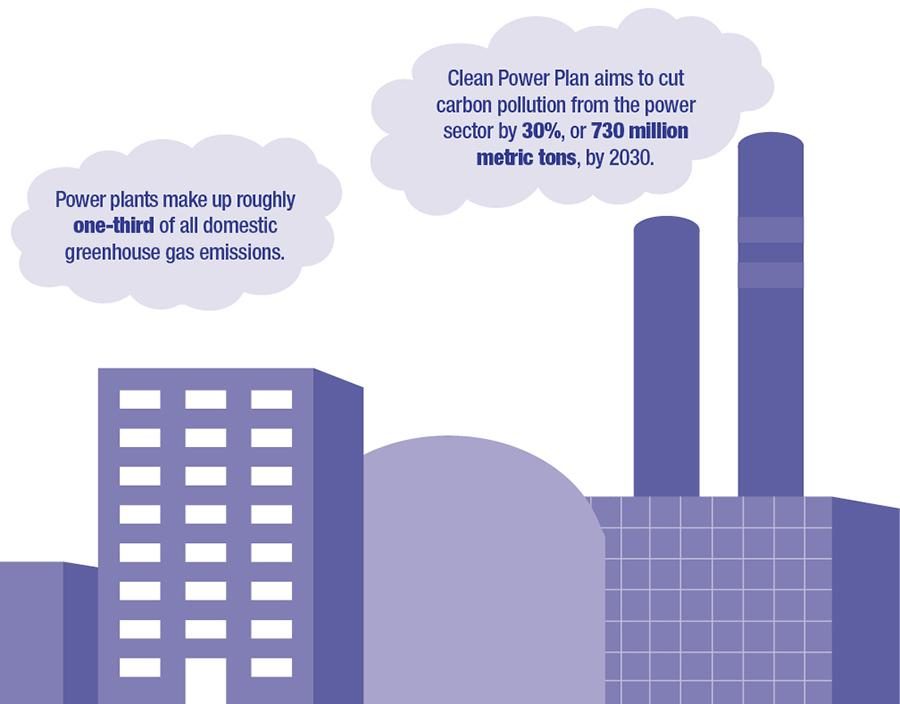EPA speaker discusses economic effects of climate policy
Related Stories
A member of the EPA discussed the economic impacts of climate policy on Oct. 28.
Climate change is expected to hurt the U.S. economy, said associate administrator for the Environmental Protection Agency’s Office of Policy Joel Beauvais. Beauvais spoke about the relationship between economics and climate change, as well as the EPA’s Clean Power Plant, at NYU School of Law’s Greenberg Lounge in Vanderbilt Hall on Oct. 28.
The event was sponsored by the Institute for Policy Integrity at NYU Law. During the event, Beauvais discussed the ongoing environmental public policy debate, which he said ultimately rests on economic arguments.
“The heart of the debate on the future of U.S. climate policy is not the science,” Beauvais said. “It’s actually not the technology; it may not even be the policies that we’re talking about here today. From the immortal words of campaign strategist James Carville, ‘It’s the economy, stupid.’”
Beauvais said the economy and climate are interdependent. He said the EPA’s efficiency in battling climate issues while maintaining economic stability.
“We’re not taking action on climate in spite of the economy, we’re taking action on climate because of the economy,” Beauvais said.
Focusing on the potential economic effects of implementing more climate policy, Beauvais compared the EPA’s proposed Clean Power Plan to the Clean Air Act of 1990. He noted that when the latter passed, leading industry groups offered dire predictions of its impact.
“When the Clean Air Act amendments were enacted in 1990, the pundits claimed that it would result in economic ruin: in the words of one leading industry group, a quiet death for businesses across the country,” Beauvais said.
Beauvais said the Clean Air Act helped cut air pollution by 70 percent and is projected to produce $2 trillion in savings by 2020.
He also acknowledged the importance of performing extensive regulatory impact analysis on the proposal. He said the development in the financial estimate of the damages caused by carbon emissions continues to play a strong role in the steps the EPA has taken toward climate policy implementation in recent years.
“Central to this effort, as Ricky highlighted, is the social cost of carbon, an estimate of the monetary value of the damages associated with carbon emissions,” Beauvais said.
Beauvais discussed the details of the Clean Power Plan’s impact analysis, drawing the conclusion that not only would the benefits outweigh the costs, but the plan would lead to creating a more productive economy, driving investments and helping businesses involved in energy efficiency flourish. He also mentioned that the plan could ultimately cost less than originally anticipated, based on past retrospective analyses.
“The market and policy flywheel is already spinning,” Beauvais said. “The Clean Power Plan is specifically designed to build on that momentum.”
Burcin Unel, a fellow at the Institute for Policy Integrity who attended the event, said the points raised by Beauvais were effective arguments against the opposition to climate regulation.
“We need to take action now, and I think this is a good way to go,” Unel said. “Most of every debate is about the economy, the heart of politics is about the economy, so always the economy is driving these arguments. Some may argue that regulation will kill jobs, but the economic impact of climate change is exactly why we need to take action now.”
CAS sophomore Isabelle Bank said Beauvais’s speech convinced her that the Clean Power Plan was an effective way to combat pollution.
“I definitely liked Mr. Beauvais’ speech, and I really like the Clean Power Plan,” Bank said. “It’s definitely cool how much it can actually do for the environment.”
A version of this article appeared in the Wednesday, Oct. 29 print edition. Email Elizabeth Gurdus at [email protected].

































































































































































